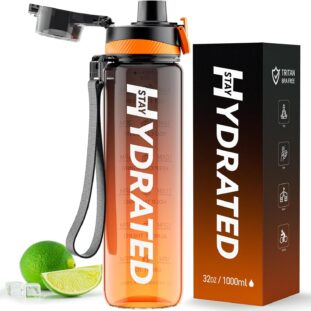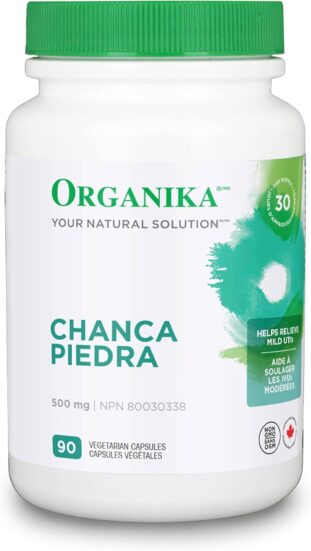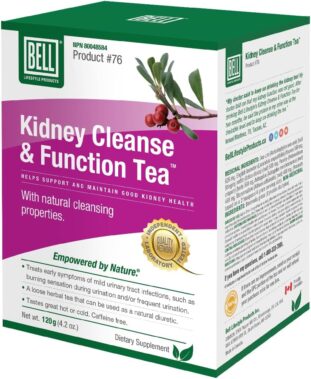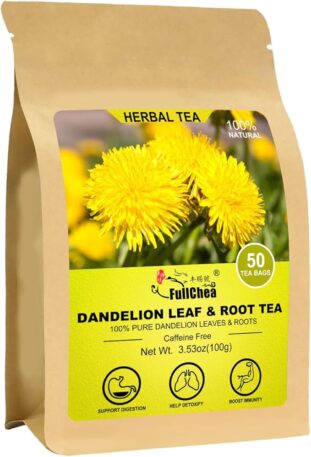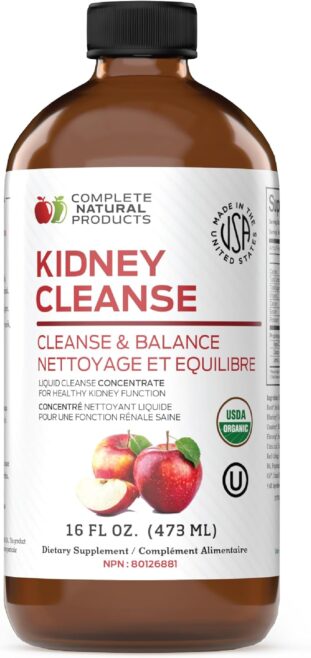Ever wondered what it takes to keep your kidneys in tip-top shape? When you are aware of the best foods to eat for kidney health, you are already ahead of the game. It’s not just about drinking plenty of water (although that’s important too!).
Your diet plays a massive role in ensuring your kidneys stay healthy and function smoothly, as taking care of your kidneys is important for overall health. While these bean-shaped organs do more than you might realize, it is what you eat that can make or break your kidney health?
This article discusses must-have foods, foods to avoid, and shares some practical tips..
Why Kidney Health Matters
Before we dig into the best foods to eat for kidney health, let’s touch on why kidney health is such a big deal.
Your kidneys work tirelessly to filter waste, balance fluids, regulate blood pressure, and manage electrolyte levels.
When they’re not at their best, well, let’s just say your body notices. Keeping your kidneys healthy can stave off serious issues like chronic kidney disease (CKD), kidney stones, and even long-term dialysis.
Now, let’s get to the main event: the best foods to eat for kidney health.
What Foods Harm the Kidneys
Certain foods can be particularly harmful to your kidneys, especially if consumed in excess. High-sodium foods like processed snacks and fast food can increase blood pressure, straining the kidneys.
Sugary drinks and sweets can lead to obesity and diabetes which are both risk factors for kidney disease. Red meat and high-protein diets may put extra stress on the kidneys, especially in people with pre-existing kidney conditions.
Artificial sweeteners and processed foods packed with additives can also contribute to kidney damage over time. If you’re keen on keeping your kidneys healthy, it’s wise to limit these foods and prioritize kidney-friendly options.
What Causes Kidney Stones
Kidney stones form when certain substances in your urine, like calcium, oxalate, and uric acid, become concentrated enough to crystallize.
Dehydration is one of the primary culprits; less fluid means these substances don’t dissolve as they should. Diets high in sodium can also trigger stone formation by increasing calcium in the urine.
Other factors include consuming excessive animal protein, which raises acid levels, and eating oxalate-rich foods like spinach and nuts without balancing them with calcium intake.
Genetic predisposition, obesity, and certain medical conditions such as hyperparathyroidism or digestive diseases can also heighten the risk.
Are there foods that improve kidney function if you have kidney stones?
If you’re prone to kidney stones, certain foods that improve kidney function and potentially prevent new stones from forming. Citrus fruits like lemons and oranges increase citrate levels in urine, which can prevent stone formation.
Watermelon and cucumber are hydrating and help flush out the kidneys. Leafy greens such as kale (in moderation) provide vital nutrients without high oxalate levels.
Whole grains like oats and barley offer fiber, aiding in toxin elimination. Herbs like basil can act as a mild diuretic, promoting urine production. Finally, staying hydrated with plenty of water is essential for diluting minerals in the urine to prevent crystals from forming.
Foods That Heal Kidneys
Certain foods are known for their protective and healing effects on the kidneys.
Berries like blueberries and cranberries are rich in antioxidants, which help reduce inflammation and protect kidney cells.
Leafy greens such as kale and spinach provide essential vitamins and minerals without high potassium levels.
Apples and red bell peppers offer a tasty way to boost fiber and antioxidants, supporting kidney function.
Garlic and onions not only add flavor but also have anti-inflammatory properties.
Fish rich in omega-3 fatty acids, like salmon, can help reduce inflammation and support heart health, indirectly benefiting the kidneys.
Including these foods in your diet can promote better kidney health and help fend off potential issues.
What are Foods that Prevent Kidney Stones
Kidney stones form when certain substances in your urine, like calcium, oxalate, and uric acid, become concentrated enough to crystallize. Dehydration is one of the primary culprits; less fluid means these substances don’t dissolve as they should.
Diets high in sodium can also trigger stone formation by increasing calcium in the urine. Other factors include consuming excessive animal protein, which raises acid levels, and eating oxalate-rich foods like spinach and nuts without balancing them with calcium intake.
Genetic predisposition, obesity, and certain medical conditions such as hyperparathyroidism or digestive diseases can also heighten the risk.
What are the Best Foods to Eat for Kidney Health?
There are at least 7 types of foods to eat for kidney health – water-rich foods, berries, low potassium vegetables, lean proteins, heart healthy fats, and whole grains
Water-Rich Foods
You’d be surprised how many of us underestimate the importance of staying hydrated. While water is a no-brainer, foods packed with water can make a significant difference too.
Top Water-Rich Choices
- Cucumbers: Composed of about 95% water, they’re hydrating and refreshing.
- Watermelon: Not only is it delicious, but it also provides antioxidants like lycopene.
- Lettuce and leafy greens: They’re light, crunchy, and full of hydration.
Pro tip: Adding slices of cucumber or lemon to your water can make sipping a bit more fun—and you’re sneaking in more kidney-friendly nutrients.
Berries
When it comes to nutrient-packed foods, berries top the list. Their antioxidants help reduce inflammation, which is crucial for kidney health.
Best Berries for Kidney Health
- Blueberries: High in vitamin C and antioxidants, they’re an all-star.
- Cranberries: Not just for Thanksgiving—they’re known for supporting urinary tract health, which indirectly benefits the kidneys.
- Strawberries: Rich in vitamins and low in potassium, a plus for those monitoring their intake.
Low-Potassium Vegetables
For those with kidney disease or who need to watch their potassium levels, choosing low-potassium veggies is key. These include
- Cauliflower: A versatile veggie that’s low in potassium and high in vitamins C, K, and fiber.
- Cabbage: Another low-potassium option that’s rich in phytochemicals.
- Bell Peppers: They’re vibrant, crunchy, and packed with vitamins—especially vitamin C.
Tip from experience: Roast your cauliflower with a sprinkle of turmeric and a dash of olive oil for a kidney-friendly, anti-inflammatory snack.
Lean Proteins: Keep It Light
Your kidneys work hard to process proteins, so it’s important to opt for lean protein sources that won’t overload them.
Best Picks for Lean Protein
- Fish: Salmon, trout, and mackerel are great sources of omega-3 fatty acids, which help reduce inflammation.
- Chicken breast: Low in fat and packed with protein—just avoid heavy seasoning.
- Egg whites: A great low-phosphorus protein choice.
Cooking tip: Grill or bake your proteins instead of frying to keep things kidney-friendly.
Heart-Healthy Fats
Not all fats are created equal, and your kidneys will thank you for choosing the right ones such as:
- Olive oil: It is anti-inflammatory and rich in antioxidants.
- Avocados: Packed with healthy fats—just be mindful of their potassium content if you’re on a restricted diet.
- Flaxseed oil: A good source of omega-3s and low in phosphorus.
Note: A drizzle of olive oil over your salad or roasted veggies can make them more flavorful and nutritious.
Whole Grains for Balanced Nutrition
Whole grains are some of the best foods to eat for kidney health because they provide fiber, which supports overall digestion and health.
Plus, they help maintain steady blood sugar levels—a win for kidney health. Recommended whole grains are
- Brown rice: A moderate source of phosphorus and protein.
- Quinoa: High in protein and all nine essential amino acids.
- Barley: Helps reduce cholesterol levels, benefiting your kidneys and heart.
Foods You Should Avoid for Kidney Health
While there are plenty of foods that benefit your kidneys, there are some you’d be better off avoiding—especially if you’re managing existing kidney issues.
Foods to Watch Out For
- High-sodium foods: Processed snacks, canned soups, and fast food can increase blood pressure and strain the kidneys.
- Red meat: Harder for your body to process and can be taxing on the kidneys.
- Dark sodas: Contain phosphorus additives that aren’t great for those with kidney concerns.
Conclusion – Best Foods to Eat For Kidney Health
Taking care of your kidneys doesn’t have to be complicated. By making smart food choices—think berries, low-potassium vegetables, lean proteins, and healthy fats—you can support your kidney health for years to come.
Small steps like staying hydrated and cutting back on processed foods go a long way. Your kidneys will thank you!
Related Articles
FAQs – Best Foods to Eat for Kidney Health
What foods support overall kidney health?
Water-rich foods, berries, low-potassium vegetables, lean proteins, and healthy fats are some of the best choices.
Can eating certain foods really improve kidney function?
While no food can “cure” kidney issues, a balanced diet full of kidney-friendly foods can help maintain function and prevent further damage.
Are avocados safe for kidney health?
Avocados are healthy but high in potassium. If you’re managing potassium intake, consume them in moderation.
What foods should be avoided for better kidney health?
Limit high-sodium foods, red meat, and drinks with added phosphorus like dark sodas.
Is drinking lots of water enough for kidney health?
Water is vital, but combining hydration with the right foods and a balanced diet is the best approach.
What is the relationship between cranberry juice and kidney health?
While cranberry juice can be beneficial for urinary tract health and might indirectly support kidney health, it is not a cure-all. If you have kidney disease or are prone to kidney stones, it is best to discuss cranberry juice and other dietary choices with a healthcare professional.


